Dr. Mardy's Quotes of the Week ("Determination")
Nov. 3—9, 2024 | THIS WEEK'S THEME: “Determination"
A Hearty “Thank You” to Subscribers
Thanks to all who’ve begun to use the “Like” and “Comments” functions. The dramatic increase in numbers also significantly improved the likelihood of my posts getting new views. If you haven’t yet joined in the fun, try it this week.
Great Opening Line Line of the Week
One of the most enjoyable things about a lifetime of reading is that, every now and then, an amazing opening line comes from out of nowhere to completely delight our sensibilities. This one came from a book I’d never seen—and an author I knew nothing about—while browsing through a shelf of dust-covered books in a musty bookstore in Durham, North Carolina.
My first reaction was to admire the phrase comic determination. Over the years, I’d seen many adjectives used to describe determination—grim, dogged, fierce, defiant, single-minded, steely, unwavering—but never had I seen one so whimsical, and so creatively employed.
When I finished reading the complete opening sentence, my face broke into a big smile as I closed my eyes and imagined the scene in my mind. Over the years, I’ve returned to that mental image a bunch of times. This week, though, I had a completely new thought about Green’s opening words.
I mentioned last week that I’ve recently started to dip my toes into the world of artificial intelligence, and a pleasant surprise was learning how easy it is to create AI images. As a result, when I began working on this week’s post, I wondered what might result if I asked ChatGTP to use the exact words of this week’s featured opening line to create an image for me. Judge for yourself.
To fully appreciate the image, go back and re-read Green’s opening line. To my mind, the result was nothing short of spectacular. And while I’m aware of the warnings about the many dangers of AI, when this image was created in ten seconds, I thought to myself: “Is this fun, or what?”
For nearly 2,000 memorable opening lines from every genre of world literature, go to www.GreatOpeningLines.com.
This Week’s Puzzler
On Nov. 7, 1913, this man was born in Mondovi (now Dréan), a small coastal town in the French colony of Algeria. His father was a poor French agricultural worker and his mother was illiterate and almost completely deaf. A little over a year after his birth, his father died in the Battle of the Marne.
Even though his early years were spent in deep poverty, he showed such exceptional intelligence in elementary school that a teacher took him aside, gave him special tutoring, and eventually helped him get a full scholarship to a prestigious secondary school near Algiers. During high school, his outstanding academic performance was matched by his impressive athletic feats, especially in soccer. Later in life, he wrote: “What I know most surely about morality and the duty of man I owe to sport.”
At age seventeen, a diagnosis of tuberculosis curtailed his sports activities, but deepened his interest in philosophy. He went on to study classics at the University of Algiers, graduating in 1936 and immediately embarking on a writing career, first in Algeria and then in France. During WWII, while serving as a leading member of the French Resistance, he wrote some of the era’s most compelling essays and novels, including “The Myth of Sisyphus” (1942) and The Stranger (1942). During the entire Nazi occupation of Paris, he also edited the influential underground newspaper Le Combat.
In 1957, at age 44, he became the second youngest recipient of the Nobel Prize for Literature (at age 42, Rudyard Kipling was the youngest). After learning that he was to receive the award, he wrote a letter to Louis Germain, the childhood teacher who took a special interest in him, in which he said:
“When I heard the news, my first thought, after my mother, was of you. Without you, without the affectionate hand you extended to the small poor child that I was, without your teaching and example, none of all this would have happened.”
With his rugged, leading-man looks and his passionate writings on the search for meaning in life, he had a cult-like popularity, and millions around the world mourned his death when, on January 4, 1960, he died at age 46 in a car accident near Sens, France (about an hour’s drive southeast of Paris).
This week’s Mystery Man had a gift for capturing important ideas in memorable ways, and one of his best was on this week’s theme:
Who is this person? (Answer below)
Would You Describe Yourself as “a Determined Soul”?
When I first came across the Puzzler quotation in the late 1970s, it captured my imagination. I had a vague feeling I’d seen something like it before, though, but simply couldn’t bring it to mind. This was in the pre-Internet days, so trying to find an obscure, half-remembered quotation was a daunting task. In the 1990s, though, armed with the revolutionary new “search” function tool, I finally tracked down the earlier passage:
Was this week’s Mystery Man inspired by Wilcox’s earlier words? Who knows, but one thing is certain: both observations beautifully captured the dictionary definition of determination: “firmness of purpose; resolve.”
The word determination derives from the Latin determinare, meaning “to enclose, bound, or set limits to.” When the word determinen first made its way into Middle English in the 14th century, it carried the sense of creating a boundary, as a surveyor might do. Gradually, though, the final letter n was dropped and the word determine took on the meaning of settling a matter or bringing something to a conclusion, as a merchant does in weighing a bag of grain or a judge in deciding a case.
Over the next several centuries, the meaning of determine gradually expanded to include the personal qualities a person must have in order to make solid and reliable judgments—and this new word was called determination. By the time Ralph Waldo Emerson wrote in the 19th century, “The only person you are destined to become is the person you decide to be,” almost all people understood that determination referred to the resolute mindset of a person of strong will and steadfast persistence.
And that has continued until the present day. For the past two centuries, when people succeed in overcoming obstacles or achieving lofty goals, it is common for observers and analysts to cite their determination.
And, by contrast, when people fail, it is their lack of determination that is commonly described as the critical factor.
For a time in the 19th century, willpower and determination were almost synonymous, but today they’re regarded as terms that describe related but quite different things. Willpower is now generally used to refer to the self-discipline that is required to control impulses and resist temptation for the sake of longer-term gains. By contrast, determination conveys the idea of a sustained and steadfast effort to achieve a goal or objective, despite obstacles or setbacks.
In today’s world, even when the word determination is not formally mentioned, it is understood to be the critical factor in many legendary observations about how to succeed in life—as when Winston Churchill said in a 1941 speech:
“Never give in, never give in, never, never, never, never—in nothing, great or small, large or petty—never give in except to convictions of honor and good sense.”
On its own, determination is a powerful force in human affairs, but it is only when it operates in concert with other factors that it enables human beings to achieve something close to nobility in their journey through life. In the heavily autobiographical The Fires of Spring (1949), James Michener described it well when he wrote:
This week, think about the role determination has played in your life. Especially consider those things you’ve accomplished because of it, and those you failed to achieve because you lacked it. Before doing anything, though, take a look at this week’s compilation of quotations on the subject:
I…resolved to take Fate by the throat and shake a living out of her. — Louisa May Alcott
Great things will occur when you get up [after failure and defeat], dust yourself off, and go after life with determination and courage. — Les Brown
There are levels of outrage, and there’s a point at which you can’t be trespassed upon anymore. Certain things happen to you that cement your determination never to take it again. — Marian Wright Edelman
A strong will, a settled purpose, an invincible determination can accomplish almost anything; and in this lies the distinction between great men and little men. — Thomas Fuller
Life, like classical music, is full of difficult passages that are conquered as much through endurance and determination as through any particular skill. — Sheri L. Dew
Dreams are realized by effort, determination, passion and staying connected to that sense of who you are. — Michael Jordan
It is not tears but determination that makes pain bearable. — Rose Fitzgerald Kennedy
You’ve got to get up every morning with determination if you’re going to go to bed with satisfaction. — George Horace Lorimer
I ran and ran and ran every day, and I acquired this sense of determination, this sense of spirit that I would never, never give up, no matter what else happened. — Wilma Rudolph
I believe Success is achieved by ordinary people with Extraordinary Determination. — Zig Ziglar
For more quotations on the theme of DETERMINATION, go here.
Cartoon of the Week:
Answer to This Week’s Puzzler:
Albert Camus (1913-60)
Dr. Mardy’s Observation of the Week:
Thanks for joining me this week. See you next Sunday, when the theme will be chosen on the basis of the results of this week’s presidential election.
Mardy Grothe
Websites: www.drmardy.com and www.GreatOpeningLines.com
Regarding My Lifelong Love of Quotations: A Personal Note

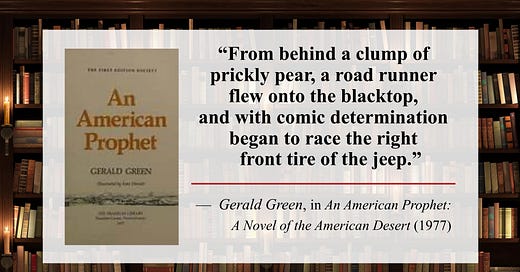




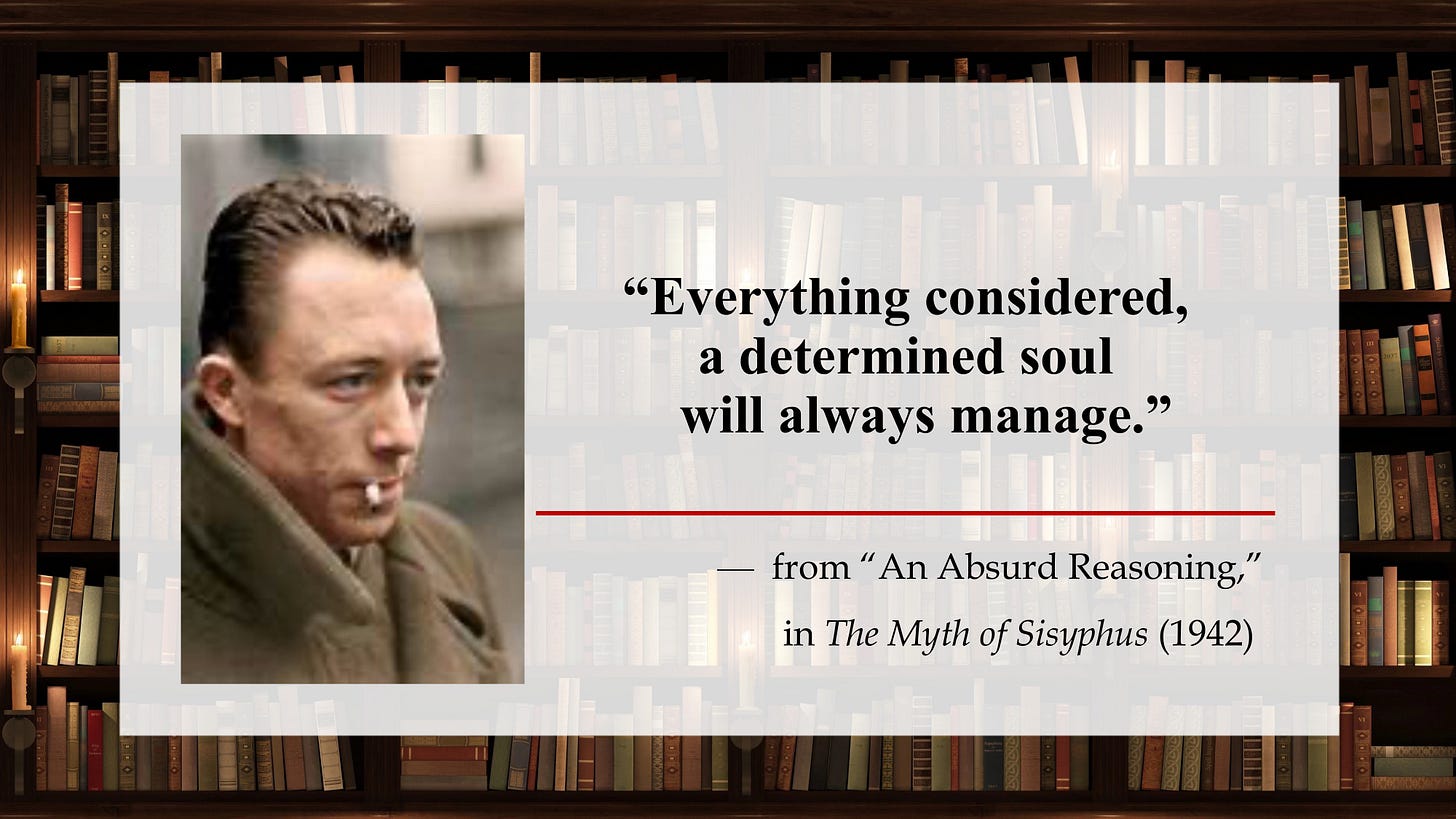
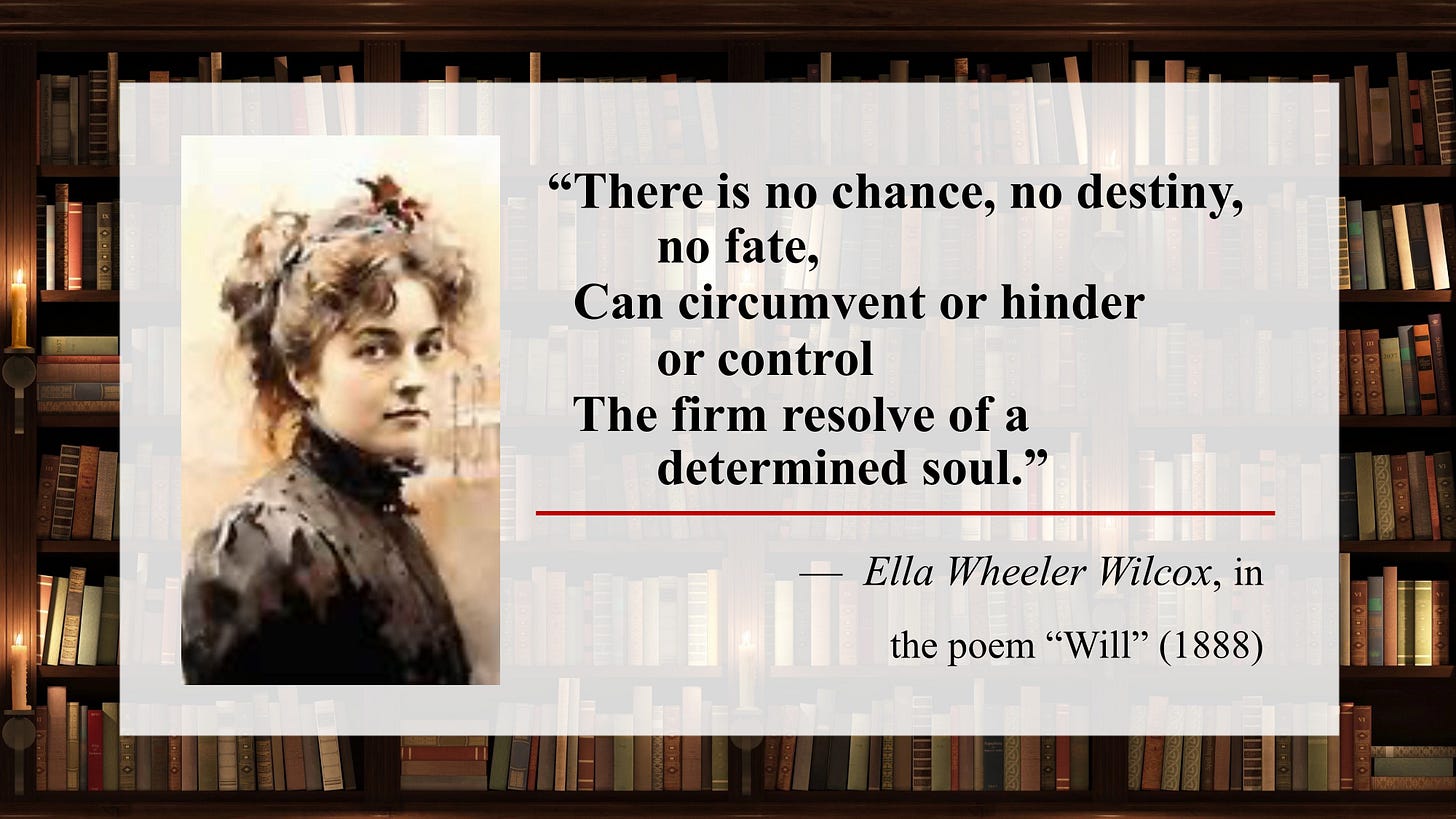
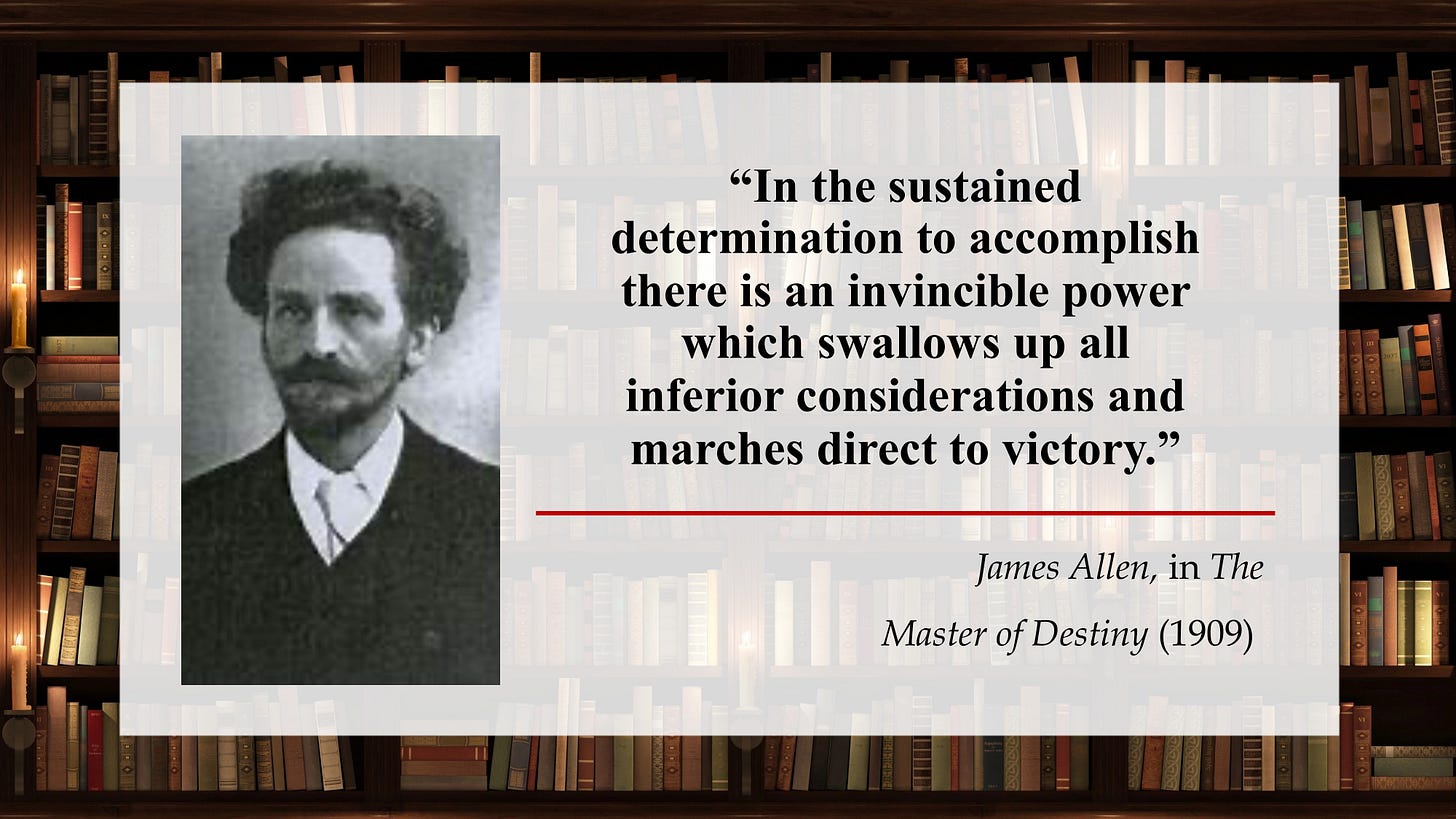
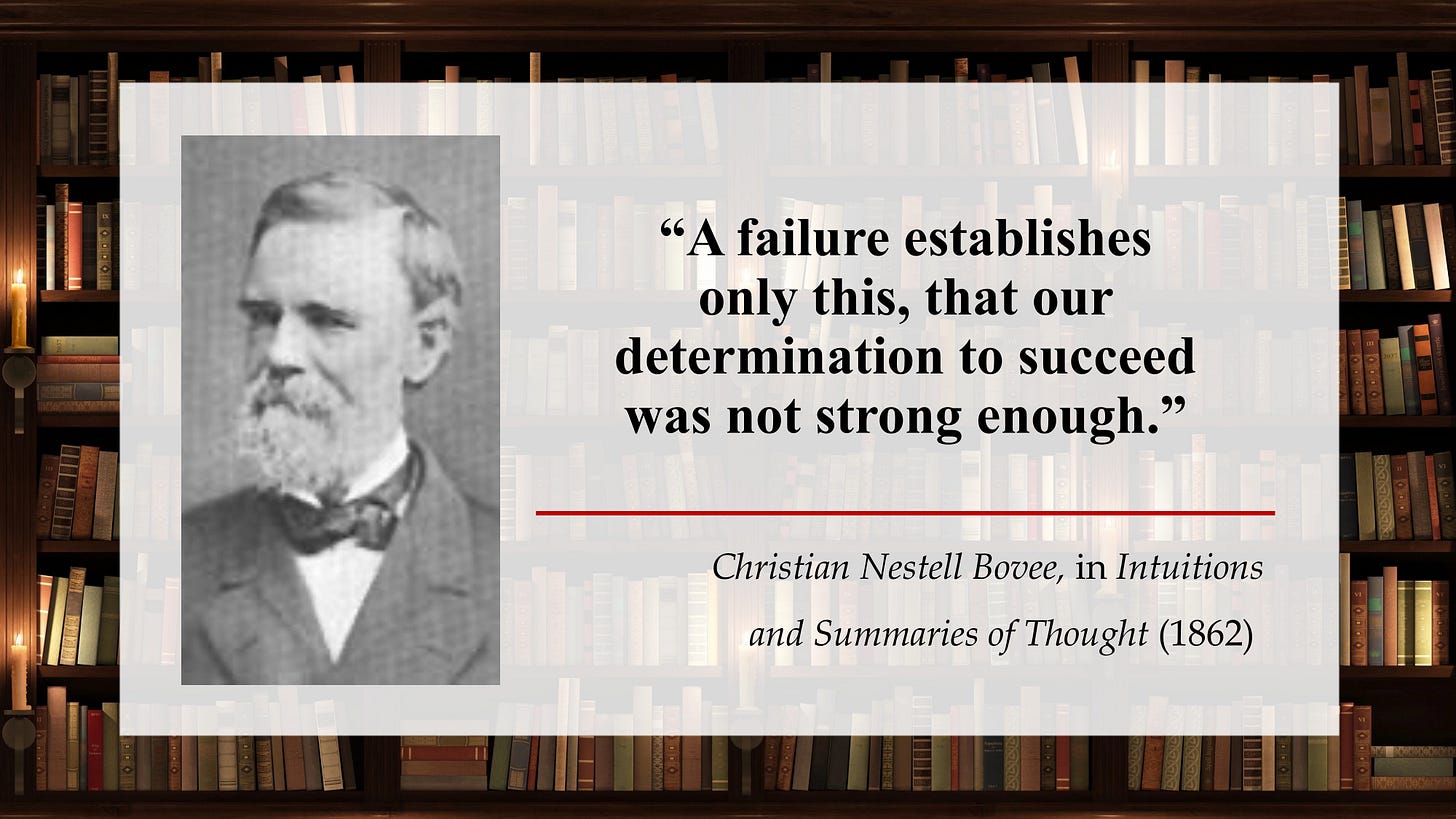
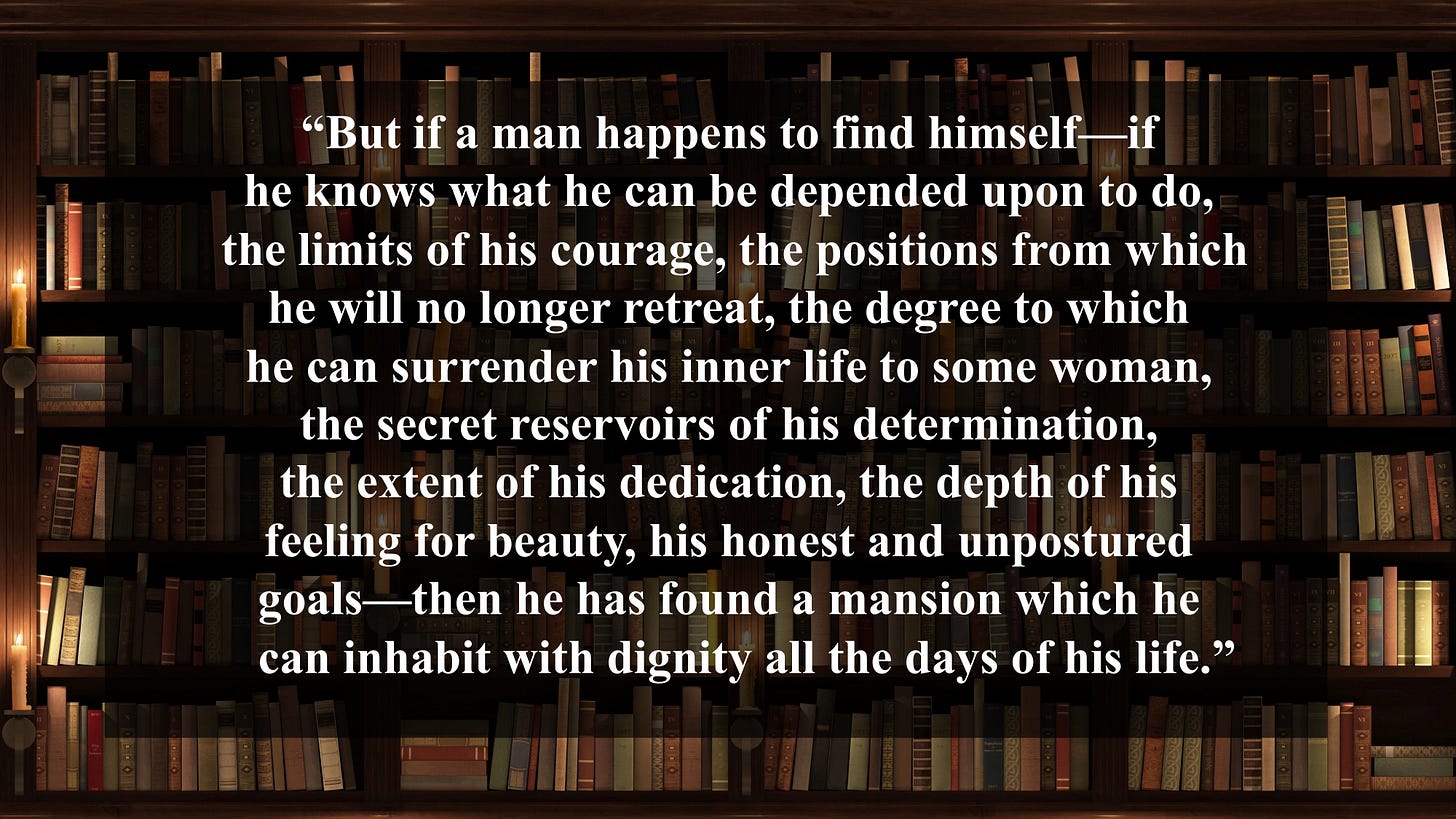


Like you, Mardy, I love to pick apart words to find their origin . In 1993 I took a summer workshop at Kent State which sparked my interest in Greek and Latin root words. For the next twenty years I delved into that subject with a passion. It was extremely useful in my years of tutoring high-school students. I'm hopeful that I reached a few students and created a love of words in them.
Wilma Rudolph's story is inspiring and instructive - worth exploring - and the quote you include today captures her spirit. The quote from Ella Wheeler Wilcox is essentially the same message.
I take issue, though, with "A failure establishes only this, that our determination to succeed was not strong enough." I don't buy it.
Perhaps failure meant to Bovee a giving up, a surrender. But we all fail. The test is what we do next. Sometimes failure is just a signpost on a path. Surely that's true if we are determined.